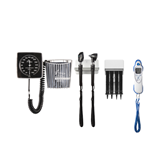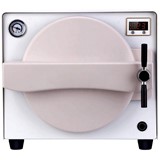It should, however, be their obligation – and duty – to whenever possible educate their patients and put them on the right path, according to Professor Andrew McLachlan, a pharmacist and noted researcher with a special interest in the appropriate use of medicines.
"Medicines play an important role in the health and wellbeing of our communities, however consumers need the correct information to use them safely and effectively," Professor McLachlan said.
"Most medicines we take can provide important health benefits, but can also have the potential to be harmful in other ways.
"Some medicines can have serious side effects, some might interact with other medications, or you might not be taking the correct dose."
Generic medicine cynicism
Professor McLachlan said patients are often unnecessarily cynical about using generic medicines.
"Patients … have no scientific basis for their fear because in Australia these cheaper brands must contain exactly the same amount of active ingredient as the brand name version."
It's 'safe' because it's 'natural'
While there could be a temptation among the medical fraternity to let patients follow their own alternative medicine agendas, specialists have an obligation to ensure they offer sound advice on the subject – even if, in many cases, that advice is not heeded by the patient.
"Herbal medicine can interact in a profound way with prescription medicines.
"The herbal antidepressant St John's wort has been shown in studies to reduce the impact of cholesterol lowering statins drugs.
"Some juices like grapefruit, apple and orange juice can increase the effect of prescription medicines."
So is it the responsibility of doctors to ask all the right questions or the responsibility of patients to be open and informative so that their doctor may respond accordingly?
"Patients must always inform their doctor about any complementary medicines and vitamins they are taking."
The symptoms have subsided – so I can stop taking my medicine
There are a number of reasons why a patient might have the desire to 'take a rest' from their regular course – be it cost, shame or inconvenience. However Professor McLachlan said patients with chronic conditions are at particular risk by doing this to themselves.
"While this is appropriate for many medicines like antibiotics and pain killers, those with chronic conditions like blood pressure and cholesterol need to keep taking their drugs.
"With chronic or long term conditions you are mitigating your health risks, avoiding a train crash in the future – like a heart attack – by taking your medicines."
Aiming for 'personalised medicine'
Professor McLachlan cautioned about overprescribing certain drugs and the need for GPs to work towards the common goal of 'personalised medicine'.
"Medicines should only be used when needed, however our culture is shifting to a society of over-use, particularly with some medicines like antibiotics.
"(We should be aiming for) the right drug for the right person, with the right information."








